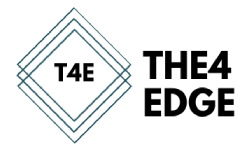Choosing the right horse food is crucial for your horse’s health, performance, and overall well-being. Horses have unique dietary needs that vary depending on their age, activity level, and health status. This guide will explore the various horse food options available and provide tips on selecting the best diet for your horse.
Understanding Basic Nutritional Needs
Horses require a balanced diet that includes carbohydrates, proteins, fats, vitamins, and minerals. Understanding these needs will help you make informed decisions about their diet.
Carbohydrates
Carbohydrates are the primary source of energy for horses. They can be found in forages such as hay and grass, as well as in grains and commercial feeds. Ensuring a steady supply of carbohydrates is essential for maintaining your horse’s energy levels.
Proteins
Proteins are crucial for growth, muscle development, and repair. Quality sources of protein include legumes, soybeans, and specially formulated horse food. The protein needs of horses vary, with younger and more active horses requiring higher amounts.
Fats
Fats provide a concentrated source of energy and are important for the absorption of fat-soluble vitamins. They also contribute to a healthy coat and skin. Common fat sources in horse food include vegetable oils and rice bran.
Vitamins and Minerals
Vitamins and minerals are vital for various bodily functions, including bone development, immune system support, and metabolic processes. Commercial feeds are often fortified with these essential nutrients to ensure a balanced diet.
Types of Horse Food
There are several types of horse food available, each catering to different dietary requirements and preferences.
Forage
Forage is the cornerstone of a horse’s diet and includes hay, grass, and haylage. It provides essential fibre that aids in digestion and helps prevent colic and other digestive issues.
- Hay: High-quality hay, such as alfalfa or timothy, is a staple in a horse’s diet. It should be free from dust, mould, and weeds.
- Grass: Fresh pasture grass is ideal for grazing horses. It is a natural and rich source of nutrients.
- Haylage: Fermented forage that retains more moisture than hay, making it a good option for horses with dental issues or respiratory problems.
Concentrates
Concentrates are high-energy feeds that supplement forage. They include grains, pellets, and sweet feeds.
- Oats: A popular grain that provides energy and is easy to digest. However, it should be fed in moderation to avoid excessive energy.
- Barley: Another grain that offers more energy than oats but is harder to digest. It is often rolled or crushed before feeding.
- Corn: Highly energy-dense and best fed in small quantities. It should be processed (cracked or flaked) to improve digestibility.
Complete Feeds
Complete feeds are formulated to provide all the necessary nutrients in one package. They are convenient and ensure a balanced diet, particularly for horses with specific dietary needs or those who do not receive enough forage.
- Senior Feeds: Designed for older horses, these feeds are easier to chew and digest, and they contain added vitamins and minerals to support aging bodies.
- Performance Feeds: Tailored for high-performance horses, these feeds offer increased energy and protein levels to support rigorous activity.
Supplements
Supplements can be added to a horse’s diet to address specific deficiencies or enhance certain aspects of their health.
- Vitamin and Mineral Supplements: Ensure that horses receive all the necessary nutrients, especially if their primary diet lacks balance.
- Joint Supplements: Contain ingredients like glucosamine and chondroitin to support joint health and mobility.
- Digestive Aids: Probiotics and prebiotics help maintain a healthy gut flora, improving digestion and nutrient absorption.
Special Dietary Considerations
Certain horses have special dietary needs that require careful attention.
Horses with Metabolic Issues
Horses with conditions such as Equine Metabolic Syndrome (EMS) or Cushing’s disease require low-sugar and low-starch diets to manage their health effectively. Forage-based diets with minimal concentrates are often recommended.
Young Horses
Foals and growing horses need diets high in protein and calcium to support their rapid growth and development. Specially formulated growth feeds are ideal for meeting these requirements.
Lactating Mares
Lactating mares have increased energy and nutrient needs to support milk production. High-quality forage, supplemented with concentrates, ensures they receive sufficient calories and nutrients.
Tips for Selecting the Best Horse Food
Choosing the right horse food involves considering various factors, including your horse’s age, activity level, and health status.
- Consult with a Veterinarian: Always seek professional advice when making significant changes to your horse’s diet.
- Read Labels Carefully: Ensure that the ingredients meet your horse’s nutritional needs and avoid feeds with excessive fillers or additives.
- Monitor Body Condition: Regularly assess your horse’s body condition and adjust their diet as needed to maintain an optimal weight.
- Provide Fresh Water: Always ensure your horse has access to clean, fresh water, as it is crucial for digestion and overall health.
Conclusion
Selecting the best horse food is essential for maintaining the health and well-being of your horse. By understanding their nutritional needs and exploring the various food options available, you can provide a balanced and nutritious diet that supports their growth, performance, and longevity. Always consult with a veterinarian or equine nutritionist to ensure your horse receives the best possible care.







